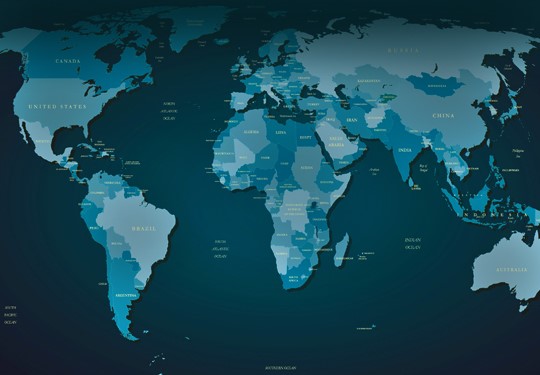The International Monetary Fund (IMF), an international organization headquartered in Washington, D.C. and composed of 189 member countries, works to foster global monetary cooperation, secure financial stability, facilitate international trade, promote high employment and sustainable economic growth, and reduce poverty around the world.
While supplying financial capital is their output, knowledge capital is their true lifeblood. The IMF uses its knowledge about the various types of funding policies, financial and economic statistics, surveillance of its members’ economies, and its global network of economists and government contacts to efficiently and effectively deliver its mission.
The staff at the IMF have a very strong inclination to collaborate and share knowledge. However, many have expressed increasing frustration at their inability to access the right information, insight, and expertise when they need it. The challenge had become greater in recent years as the volume of the IMF’s internal content continued to explode. There was also a strong need to improve how staff could quickly find topical experts across the organization.
Up until mid-2016, the IMF did not have any formal or structured program for knowledge management. A few years earlier, the IMF conducted an organization- wide review of KM, but the effort failed to move forward. Then in January 2016, as a result of continued staff requests for better KM processes and tools, one of the Deputy Directors sponsored a fresh review. A 15-person working group was formed with the charter of creating a vision, business case, and a set of recommendations for establishing the IMF’s knowledge management capability. The working group lacked experience in designing and implementing knowledge management and they were worried about repeating the previous failed attempt. They needed assistance from experts who had established KM programs in complex, matrixed organizations and who had a wealth of best practices from other industries and government and NGO sectors. They turned to Iknow for help.
The objective of this initial assignment was to support the IMF’s KM working group by providing an external, expert review of the working group’s draft strategy and plan for knowledge management.
Iknow structured the project in three phases.
1. Discover Phase. Iknow started the assignment by reviewing the current draft documents, the previous KM recommendations, and other relevant information. Then Iknow conducted interviews with the KM working group and with other IMF stakeholders. The Discover Phase established a baseline understanding of the IMF’s knowledge management environment and the associated issues.
2. Workshop Phase. Next, Iknow facilitated two workshops with the KM working group. The two half-day interactive workshops proved to be excellent forums for discussing, challenging, reviewing, and enhancing the draft documents. The workshops helped align the team to a common KM vision and goals for the future state.
3. Strategy Refinement. Iknow captured the conclusions and insights from the two workshops and incorporated this new material into the draft documents. Iknow provided a knowledge model and recommended a series of priority and longer- term actions, addressing such issues as governance, cultural change, and communications. Iknow also added additional perspectives from its previous client work to enhance the vision and planning documents. Lastly, Iknow helped IMF develop KM storylines and use cases that clearly demonstrated KM’s value propositions for the key stakeholders.
Iknow’s input into the planning process strengthened the working group’s proposal for the new KM vision, plan, and recommendations. Specifically, Iknow’s support aligned the KM vision and plan with the IMF’s strategic plan and communicated KM’s value in more tangible and practical terms. The resulting recommendations quickly gained support from the IMF’s senior management.


